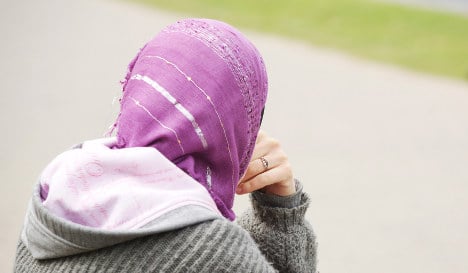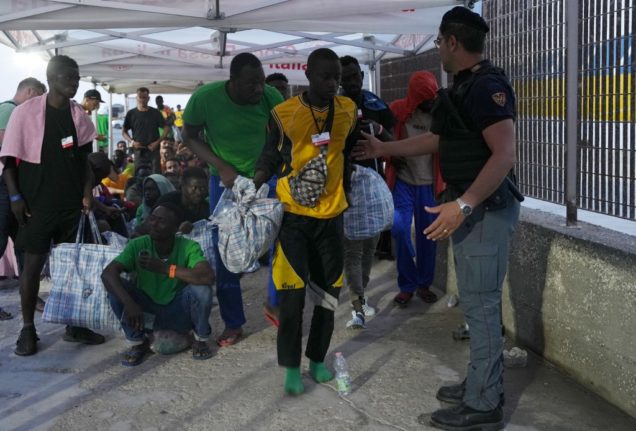According to a marriage custom in Turkey, the bride usually wears a red sash around her waist. It symbolizes the blood expected on her wedding night – considered proof of virginity. This disturbing tradition is not just followed in rural regions. It’s practised by almost all religious Turks – even those born and raised in Germany.
But what’s often ignored is whether the woman – or her husband – actually wants to wed. The fairly common ritual of forced marriage is not always easy to discern. Researchers studying immigration speak of forced marriages when people are pressured into tying the knot by threatening them with psychological or physical violence.
That still happens often enough in Germany, 50 years after the first Turkish “guest workers” arrived. A recent study presented by Family Minister Kristina Schröder and Integration Commissioner Maria Böhmer concluded that forced marriages aren’t uncommon in Muslim communities in Germany and also affect young people.
But why has this condemnable ritual endured? Why do these people – according to the study mostly Turks – not adapt and identify with the values in German society? Apparently, not even some born in Germany do.
Integration, of course, is a two-way street. Ideally, it involves a majority willing to accept others and a minority that wants to be a part of that society. But many guest workers who came here didn’t want to be a part of Germany. They wanted to earn money and return to their native country as soon as possible. Instead, they ended up staying. But it appears that many didn’t change their way of thinking. Many guest workers brought over their families to Germany and proceeded to live fairly insular lives in immigrant-dominated neighbourhoods, making it difficult for their children to gain a foothold in German society.
Many remained strangers in their adopted country and Germany failed to integrate this growing minority. It’s true that immigrants today are provided with an unprecedented level of support to become part of German society. But many immigrants still feel like unwelcome guests in Germany. They are unwilling to entrust their daughters (or sons) to people they aren’t familiar with, which is why they often choose a partner for them from their own culture.
That’s one part of the problem. The other is that there’s very little interest in the issue in Germany. Blatant cases of so-called “honour killings” – such as the widely-reported murder of Hatun Sürücu by her brother in Berlin in 2005 – do spark outrage. But what’s often ignored is that psychological and physical violence often begins much earlier.
This probably has to do with the fact that forced marriages are simply unthinkable for most Germans. Such traditions are so far removed from their world that they aren’t even aware of their existence here. Every now and again, the problem is thrust into the public consciousness when the popular Sunday night Tatort crime show focuses on it or when Fatih Akin, the famous German director of Turkish origin, wins a prize for a film on a similar topic.
But most Germans wouldn’t dream that the Kurdish girl at school who spoke perfect German or the Afghan boy they played football with and who was crazy about blondes would be affected by this backward ritual. But it’s precisely people like these who end up in forced marriages, the study shows.
Most victims of forced marriages in Germany have German nationality. A third of the girls and women forced to get married are born here. We must take the issue seriously. We must ask questions and intervene. Simply looking away is not a solution.
This editorial was published with the kind permission of ZEIT ONLINE, where it originally appeared in German. Translation by The Local.



 Please whitelist us to continue reading.
Please whitelist us to continue reading.